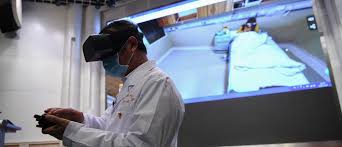Source: thestar.com.my
WITH Kuala Lumpur, Putrajaya, Sabah and Selangor placed under a conditional movement control order (MCO) following the spike in Covid-19 cases nationwide, the onus is on every Malaysian now to play a greater and crucial role in flattening the infection curve.
We were successful in fighting the pandemic’s spread the first time around, so we know we can do it again.
If we are all disciplined and diligently comply with standard operating procedures and restrictions put in place by the authorities, areas under the conditional MCO will see a downward trend in case numbers over the next several weeks, according to health experts.
There is no point playing the blame game over the surge of infections now. It’s spilt milk.
Our priority now should be on bringing the numbers down and preventing further havoc in the economy that would wipe out more businesses and jobs, and cause disruptions to people’s livelihoods.
Economic data for early in the third quarter showed the promising beginnings of recovery with the unemployment rate easing from 4.8% in June to 4.7% in July.
Let’s not lose that momentum.
To keep the positivity going, remember the two most important things when you leave home: wear a mask and – this is vital – keep you distance from people.
In handling this health crisis, the government must also be firm and clear in issuing instructions.
The speed at which decisions have to be made sometimes causes confusion, for instance, how many people can travel together in a car (two, with the passenger sitting in the back, according to the National Security Council, or MKN) and how many people can sit at restaurant tables – two, according to MKN on Wednesday; but larger tables can have four people, said Senior Minister (Security) Datuk Seri Ismail Sabri Yaakob on Thursday; a maximum of five people at a table normally seating 10 is possible, said Selangor Mentri Besar Datuk Seri Amirudin Shari on Friday.
Obviously, announcements of protocols should come only from one source, not from multiple agencies or politicians, to prevent misinformation in this critical time.
At the same time, the authorities should also fully utilise the MySejahtera app to fight this pandemic, especially in performing contact tracing and notifications to warn the public of Covid-19 hotspots.
MySejahtera was launched six months ago and was developed cooperatively by the Health Ministry, the National Security Council, the Malaysian Administrative Modernisation and Management Planning Unit (more familiarly known as Mampu) and the Malaysian Communications and Multimedia Commission.
But is the government using the app’s full capability beyond simply recording users’ whereabouts?
Big data has been used effectively in countries like South Korea and China to manage infection rates, and MySejahtera has access to pretty big data with 15.1 million registered users as at Aug 16.
However, out of 9,200 Covid-19 patients detected up to August, the app successfully found only 322 cases, which is a mere 3.5%.
There is also the question about how safe the data collected by MySejahtera is.
The authorities must be transparent about data mining and assure Malaysians that the information collected is confidential and used only to combat the spread of Covid-19, and that it will not fall into the wrong hands or be misused for commercial purposes.
